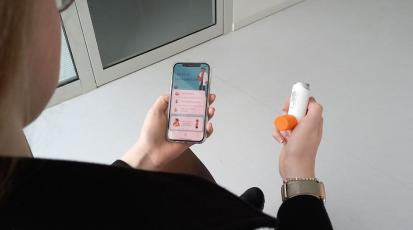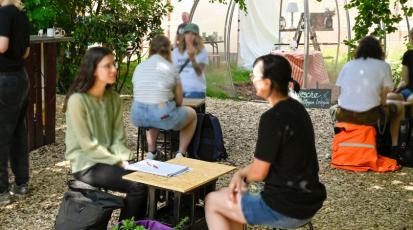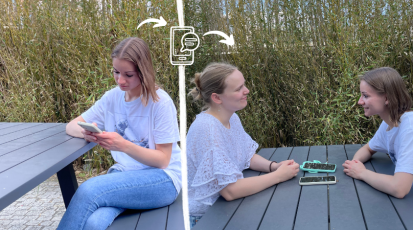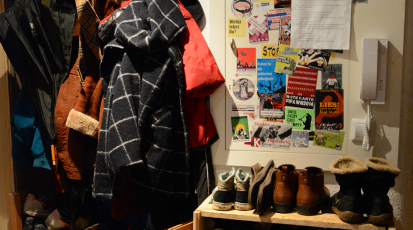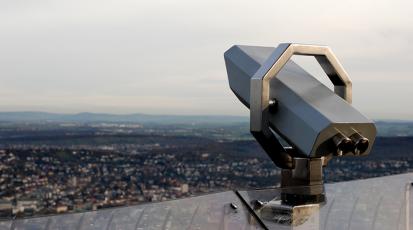From a state of emergency to the new normal?
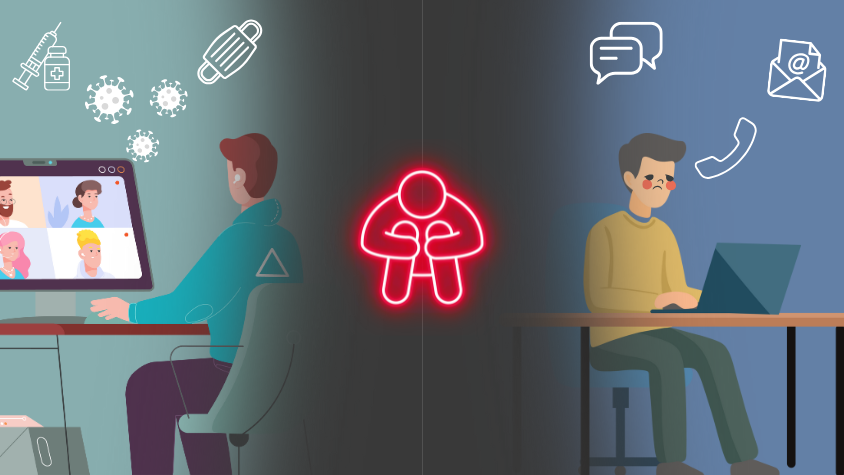
We used to complain about long working hours in the offices, endless meetings and loud coworkers but then the world hit pause. Suddenly, the workplace environment changed and many of us got what we always dreamt of - working from the comfort of your own home. But somewhere between this temporary satisfaction, some unexpected feeling of loneliness walked in. A deep, persistent sense of isolation. As remote work becomes the new normal, it is time to wonder: what have we gained and what are we losing?
But first, what do we mean by loneliness?
We refer to the following definition: Loneliness is a subjective, unwelcome feeling of lack or loss of companionship. It happens when there is a mismatch between the quantity and quality of the social relationships that we have, and those that we want.
Who was lonely before?
Loneliness was already a significant issue for certain groups even before the pandemic. Statistics of 2019 in Germany show that young adults (18-29) reported the highest levels of frequent loneliness. It shows that the younger the group, the more likely individuals were to experience persistent loneliness. Gender differences were also notable, approximately 10% of women and 7% of men experienced frequent loneliness. Even before COVID-19, younger people and women were more vulnerable to loneliness.
What was the overall situation before the pandemic?
In 2018, 68% of Germans perceived loneliness as a serious societal problem, reflecting high awareness of the issue even before the pandemic. Among the reasons for feeling lonely, 55% attributed it to situational factors like work overload, illness, relocating, or relationship breakdowns. Emotional states such as feeling low or having a bad day – were cited by 49%, while personal traits and self-blame were indicated by 36% of respondents. At that time remote work was still rare: only 4% of employees in Germany worked from homem compared to just 7,9% globally. These insights show that loneliness before COVID-19 was mostly attributed to situational and emotional factors rather than long-term social isolation.
For more stories on loneliness and connection from an international perspective, please follow this link!
What did Covid change?
The COVID-19 pandemic drastically altered daily life, introducing measures like social distancing, lockdowns, and isolation. These changes have had a big profound impact on mental well-being, leading many people to experience increased feelings of loneliness. A systematic review of workplace studies from 2020 to 2024 highlights that the sudden shift to remote work turned a niche option into the norm and with it came a negative cost of heightened feelings of isolation among employees. The lack of social interactions and uncertainty about the future have contributed to a growing mental health crisis.
Data indicates that individuals already vulnerable to loneliness – such as young adults aged 18 to 30, low-income individuals, and those who are living alone – faced even higher risks during COVID-19 pandemic.
Factors such as separation from peer groups, academic uncertainty and remote studying or entering the remote workforce contributed to this shift. Additionally, being a student became a more significant risk factor for loneliness during lockdown than usually.
As the pandemic progressed, employees adapted to new ways of working. For example, remote work increased dramatically during the pandemic and has continued to be widely adopted, with many individuals still working remotely post-pandemic. For instance, as of 2019, only 8% of remote-capable employees worked entirely from home while 60% spent the entirety of their hours on-site. In the middle of the pandemic, this shifted drastically. In May 2020, 70% of employees who had the chance to work from home did so, whereas only 12% of them worked exclusively from home. The gap between these two forms of work became smaller in the following years. Hybrid work models, consisting of part-time working on-site and part-time working remotely, were on the rise.
In 2022, 19% of US employees capable of working remotely, worked entirely in office again, the number of people who only work remotely had decreased to 41%. The preferred way of working now was the Hybrid work model, with 42% of remote-capable employees. After the pandemic, the numbers never went back to a pre-Covid-like pattern. By the end of 2024, they stabilized at around 20% working only on-site, so just about a third of those who did so before the pandemic. 25% now work entirely remotely while 55% prefer Hybrid work. The study predicts that roughly 60% will see Hybrid work as the preferred work model in the future, with only 7% preferring to work entirely on-site and 33% expecting full-time remote employment. However, high levels of negative emotions – such as stress, worry, and loneliness – negatively impact wellbeing and mental health in the workplace
The COVID-19 pandemic fundamentally transformed the world of work by raising the remote and hybrid work models, turning digital communication tools from optional conveniences into essential gadgets. This rapid change disrupted traditional workplace social structures, replacing in-person interactions and bringing up the feelings of isolation. As a result, loneliness in the workplace evolved from a temporary emotional experience into a long lasting widespread issue. However, this raises an important question: Is the change in workplace loneliness solely dependent on the rise in remote work, or are there bigger factors that play in the evolving experience of isolation? Let´s try to have a look in the future:






